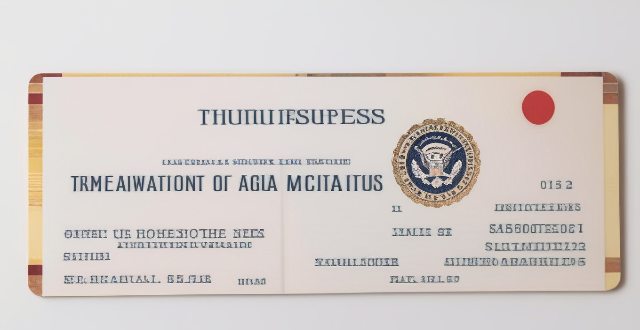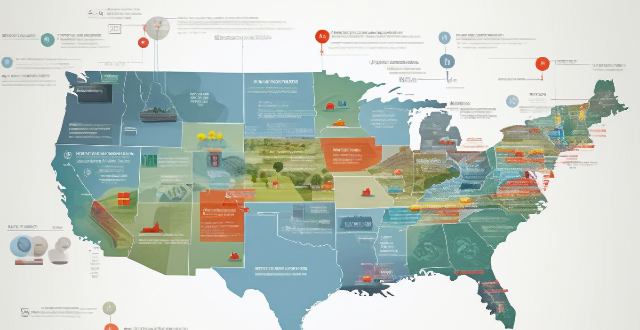Japan Visa

How does Japan manage its immigration with its strict policies ?
Japan's Immigration Management with Strict Policies Japan maintains strict immigration policies to protect its cultural identity and ensure the smooth integration of immigrants into society. These policies include visa requirements, a points-based system for evaluating foreign workers, a residence card system, employment regulations, and language requirements. Foreign nationals must obtain a visa unless exempt, and there are different types of visas depending on the purpose of visit. The points-based system assigns eligibility based on factors like age, education, experience, and language skills. Once in Japan, foreigners must register their residence within 90 days and carry a Residence Card at all times. Employers must comply with laws regarding foreign workers' wages, hours, and safety standards. Language proficiency is often required for work or study visas to facilitate communication and integration into Japanese society. Overall, these measures aim to manage immigration legally and harmoniously while contributing positively to Japan's economy and society.

Can I extend my tourist visa once I arrive in the country ?
This article discusses whether it is possible to extend a tourist visa once arriving in a foreign country. It outlines eligibility criteria, steps to follow for extending the visa, and things to keep in mind while considering an extension. The main points include checking purpose of visit, duration of stay, financial capacity, health and safety; gathering required documents; contacting immigration authorities; attending interview (if required); paying fees (if applicable); waiting for approval; obtaining extended visa; timely application; adhering to laws and regulations; seeking professional help if needed.

What are the requirements for a tourist visa ?
The article provides a comprehensive list of general requirements for obtaining a tourist visa, which include having a valid passport, completing a visa application form, providing recent photographs, presenting a detailed travel itinerary, demonstrating financial stability, possessing health insurance, submitting an invitation letter if applicable, explaining the purpose of visit, and possibly offering a police clearance certificate. It emphasizes the importance of checking with the embassy or consulate of the destination country for specific instructions due to variations in requirements among different nations.

What is the validity period of a tourist visa ?
The validity period of a tourist visa varies depending on the country's immigration policies and the type of visa issued. There are two main types of tourist visas: single-entry and multiple-entry. Short-term tourist visas typically have a validity period of up to 90 days, while long-term tourist visas have a validity period of more than 90 days. Several factors can affect the validity period of a tourist visa, including the applicant's nationality, purpose of visit, financial status, and immigration history. It is essential to check the specific requirements and conditions before applying for a tourist visa.

How long does it take to process a travel visa ?
The time it takes to process a travel visa can vary significantly depending on several factors, including the country you are applying for the visa, your nationality, the type of visa you are applying for, and how quickly you are able to submit the required documents and information. It is important to research the specific visa processing time for the country you are applying for the visa, as well as your nationality, the type of visa you are applying for, and how quickly you are able to submit the required documents and information. By taking these factors into account, you can better plan for your travel visa application process.

How much does it cost to obtain a tourist visa ?
This detailed guide outlines the cost implications and requirements for obtaining a tourist visa to the People's Republic of China as of July 2024, using the process in the United States as an example. The guide covers visa types, required documents, additional requirements, cost implications, and the application procedure. It also highlights recent simplifications in the document requirements and emphasizes the importance of meeting all specified requirements and being prepared for associated costs.

How can I check the status of my tourist visa application ?
Checking the status of your tourist visa application can be a nerve-wracking experience, especially when you're eagerly anticipating your travel plans. Here's a step-by-step guide to help you through the process: 1. Determine the type of visa you applied for, as different visas might have different checking procedures. 2. Locate the appropriate government website or portal dedicated to visa services where you can check the status of your application. 3. Have your application details ready, such as Application ID Number, Passport Number, and Date of Birth. 4. Enter the required details into the online system on the visa status portal. 5. Submit the form and retrieve the status of your visa application. 6. Interpret the status message, which could indicate that your application has been accepted, is under review, requires administrative processing, has been issued, or has been refused. 7. Follow up if necessary with the embassy or consulate for any delays or further action required. Additional tips include keeping track of timelines, being patient as visa processing times can vary, and staying informed about any events that might affect processing times. By following these steps, you should be able to effectively check the status of your tourist visa application and plan accordingly.

What documents do I need to provide for a tourist visa application ?
The text provides a list of essential documents required for a tourist visa application, including a passport with at least six months' validity and two blank visa pages, recent passport photographs meeting specific requirements, a completed visa application form, a detailed travel itinerary, proof of financial means, an invitation letter if applicable, travel insurance, and a cover letter explaining the purpose of the visit. The text emphasizes the importance of gathering these documents beforehand to make the application process smoother and increase the chances of success. It also notes that specific requirements may vary by country, so applicants should check the documentation needs and specifications for each item.

Is it necessary to have a return ticket for a tourist visa application ?
The text discusses the importance of a return ticket for a tourist visa application. It states that a return ticket is necessary to ensure the traveler has plans to return to their home country after the completion of their trip. Other documents required for a tourist visa application include a valid passport, hotel reservation, travel itinerary, financial evidence, invitation letter, travel insurance, application form, and photo. The return ticket is considered important as it shows the embassy or consulate that the traveler plans to return to their home country after their trip, reduces the chances of overstaying their visa period, assures the authorities of departure arrangements, and maintains the integrity of visa policies. If a traveler cannot provide a return ticket at the time of application, there is a high probability of visa rejection. However, an onward journey ticket can be provided as an alternative. Alternatives to a return ticket include one-way tickets, open-ended tickets, refundable tickets, and onward journey tickets. To ensure the availability of a return ticket, travelers should book in advance, choose flexible dates, opt for refundable tickets, and check with airlines about their policies. Not providing a return ticket can lead to visa rejection, blacklisting, impact future applications, and financial losses. Travel agents can assist in getting a return ticket or suggesting alternatives but may charge additional fees.

Do I need a visa if I'm only staying in the country for a few hours ?
Do I Need a Visa If I'm Only Staying in the Country for a Few Hours? Traveling to a foreign country often involves understanding the visa requirements, even if your stay is only for a few hours. The need for a visa depends on factors such as the purpose of your visit, the duration of your stay, and the specific regulations of the country you are visiting. Some countries offer visa exemptions for brief transit stays, especially if you remain in the airport and do not enter the country's territory. For business meetings or other activities that require leaving the airport, a visa may be necessary regardless of the duration. Countries often have specific rules for visits shorter than 24 hours or even up to 90 days, which may affect visa requirements. Generally, if your stay exceeds the short-term visit limit, a visa will be required. Some countries have agreements that allow citizens of certain nations to enter without a visa for short periods. For layovers or connecting flights, some countries issue transit visas that allow limited time within the country or its airports. To determine visa requirements, research the country's visa policy, consult with the airline, check travel advisories, and contact the embassy directly if unsure. Whether you need a visa for a short stay largely depends on the country's immigration policies and the purpose of your visit. It is essential to research and understand these requirements before traveling to avoid any complications at border control.

What changes have been made to New Zealand's immigration policy recently ?
New Zealand's recent immigration policy changes aim to address labor shortage and promote economic growth by creating a new visa category, increasing residence visa allocation, simplifying the application process, offering greater flexibility for international students, and reducing processing times.

Can I apply for a tourist visa online ?
Applying for a tourist visa online is convenient and efficient, with requirements including a valid passport and proof of funds. The process involves filling out an electronic form and uploading supporting documents. Payment is typically required through a secure gateway, and approval may require additional documentation or an interview. Processing times vary, so it's important to apply well in advance of travel.

What is the correlation between immigration policies and entrepreneurship ?
Immigration policies significantly impact entrepreneurship by influencing talent access, regulatory environments, cultural diversity, and economic opportunities. Talent-friendly policies like Canada's Express Entry System and the U.S. H-1B Visa attract skilled immigrants, enhancing competitiveness. Supportive regulatory frameworks, such as Australia's Business Innovation and Investment Program and the UK's Tier 1 Entrepreneur Visa, simplify business establishment processes. Diversity-promoting policies, like New Zealand's Residence Programme and Germany's Blue Card EU, foster innovative solutions through varied perspectives. Economic opportunities arise from policies like Sweden's Startup Visa and Ireland's Startup Entrepreneur Programme, which create market gaps and support immigrant entrepreneurs. Governments should implement policies encouraging entrepreneurship among immigrants and local populations.

What are the best destinations in Asia for foodies ?
Asia is a haven for food lovers with its diverse range of cuisines. Here are the best destinations in Asia for foodies: Tokyo, Japan; Bangkok, Thailand; Penang, Malaysia; Hong Kong; Seoul, South Korea; Mumbai, India; Ho Chi Minh City, Vietnam; Taipei, Taiwan; Osaka, Japan; and Singapore. Each destination offers unique and delicious dishes that are sure to satisfy any food enthusiast's cravings.

Where will the next Summer Olympics football tournament be held ?
The next Summer Olympics football tournament will take place in Tokyo, Japan from July 23 to August 8, 2021. The matches will be played at several stadiums across Japan, including Saitama Stadium, Sapporo Dome, International Stadium Yokohama, Nippon Gaishi Stadium, and Kashima Soccer Stadium. There will be 16 men's national teams and 12 women's national teams competing for gold medals in their respective categories. Due to the COVID-19 pandemic, there have been some changes to the schedule and format of the tournament, including limited spectators, staggered scheduling, and regular testing for all participants.

How do people in Japan celebrate the Lunar New Year with food ?
In Japan, the Lunar New Year, known as Oshogatsu, is celebrated through various food traditions that symbolize wishes for the new year. One iconic tradition is osechi ryori, a collection of colorful and symbolic dishes arranged in a lacquer box called an ojubako. These dishes include Kohaku Namasu, Kuromame, Tazuki, Kagamobashi, and Datemaki, each representing different aspects of life such as success, health, luck, connections, and learning. Another important food is mochi, a sweet rice cake believed to bring longevity and happiness. On New Year's Day, many families enjoy ozoni, a warm soup with mochi or soba noodles, vegetables, and sometimes chicken or fish, symbolizing the transition from the old year to the new one. While not as widely celebrated as other holidays, these culinary traditions remain significant for those who observe the Lunar New Year in Japan.

Where can I find a fine dining experience in Tokyo, Japan ?
Tokyo is famous for its diverse culinary scene, offering a wide range of fine dining experiences that cater to various tastes and preferences. Whether you're in the mood for traditional Japanese cuisine or international fare, there are plenty of options to choose from. Here are some of the top places to find a fine dining experience in Tokyo: ## Traditional Japanese Cuisine ### Kohju - **Location**: Ginza district - **Cuisine**: Kaiseki (traditional multi-course meal) - **Highlights**: Elegant atmosphere, seasonal ingredients, skilled chefs - **Price Range**: High-end ### Ishikawa - **Location**: Shibuya district - **Cuisine**: Sushi (raw fish served with vinegared rice) - **Highlights**: Fresh seafood, expert sushi craftsmanship, intimate setting - **Price Range**: Moderate to high-end ## International Cuisine ### Quintessence - **Location**: Shiodome district - **Cuisine**: French - **Highlights**: Innovative dishes, impeccable service, stunning views of Tokyo Bay - **Price Range**: High-end ### Narisawa - **Location**: Minami Aoyama district - **Cuisine**: Modernist Japanese with international influences - **Highlights**: Creative presentations, locally sourced ingredients, artistic plating - **Price Range**: High-end ## Vegetarian/Vegan Options ### Yohji - **Location**: Harajuku district - **Cuisine**: Vegan Japanese fusion - **Highlights**: Flavorful plant-based dishes, unique flavor combinations, cozy atmosphere - **Price Range**: Moderate ### Sougo - **Location**: Roppongi district - **Cuisine**: Vegan Italian - **Highlights**: Hearty pastas, authentic Italian flavors, friendly staff - **Price Range**: Moderate to high-end ## Budget-Friendly Options ### Ichiran Ramen - **Location**: Multiple locations throughout Tokyo - **Cuisine**: Ramen (noodle soup) - **Highlights**: Customizable broth and toppings, fast service, affordable prices - **Price Range**: Affordable ### Tenya - **Location**: Multiple locations throughout Tokyo - **Cuisine**: Tendon (tempura over rice) - **Highlights**: Crispy tempura, generous portions, quick meals on the go - **Price Range**: Affordable No matter your budget or dietary preferences, Tokyo offers a diverse array of fine dining experiences that will leave you satisfied and eager to return for more.

What is the impact of Brexit on UK immigration policies ?
Brexit has had a significant impact on UK immigration policies, including the end of free movement for EU citizens, the introduction of a points-based immigration system, a settled status scheme for EU citizens, changes in student visa policies, and increased scrutiny of immigration applications. These changes reflect the UK government's desire to regain control over its borders and shape its immigration policies according to national interests.

What impact do stricter immigration policies have on family reunification ?
Stricter immigration policies have a significant impact on family reunification, causing delays, increased costs, limited opportunities, negative socio-economic impacts, and challenges for children. Policymakers should consider these consequences when developing and implementing immigration policies that affect families.

Are there any restrictions on who can shop at duty-free stores ?
Duty-free shopping offers savings for international travelers, but not everyone can shop tax-free. Eligibility criteria include traveling internationally, being a departing or arriving passenger, having connecting flights outside the country, and complying with quantity limits and customs regulations. Restrictions may apply based on age, nationality, transit status, visa requirements, and security concerns. Understanding these guidelines helps travelers make the most of duty-free opportunities.

What are the latest immigration policies in the United States ?
The latest immigration policies in the United States have been evolving and changing rapidly. Key updates include the public charge rule, asylum policy changes, DACA renewal fees, visa restrictions for pregnant women, travel ban expansion, and migrant children at the border. These policies reflect a trend towards stricter enforcement and restrictions on both legal and illegal immigration. Advocates argue that these policies harm vulnerable populations and undermine America's historical reputation as a nation of immigrants.

What banks and credit card providers support Apple Pay ?
Apple Pay is a mobile payment and digital wallet service that works with Apple devices. It allows users to make secure purchases in person, in iOS apps, and on the web using Safari. Many banks and credit card providers support Apple Pay, including Bank of America, Capital One, Chase, Citi, Wells Fargo, American Express, Discover, MasterCard, and Visa. Adding your card to Apple Pay is a straightforward process involving opening the Wallet app, tapping the plus sign, and following the steps to add a new card. The availability of Apple Pay and the specific cards it supports may vary by country or region, so it's important to check with your bank or card issuer to confirm compatibility and get any necessary instructions.

What are the trends and predictions for the future of international education ?
The future of international education is expected to be shaped by a range of trends and predictions, including: 1. **Increased Demand for Global Learning**: A rise in student mobility and diverse programs catering to specific interests. 2. **Technology-Enabled Learning**: Greater integration of online resources and blended learning models. 3. **Cultural Competence and Global Citizenship**: Emphasis on intercultural skill development and global citizenship education. 4. **Collaborative Partnerships and Exchanges**: More institutional partnerships and multinational collaborations. 5. **Sustainability and Social Impact**: Green campuses and community engagement initiatives. 6. **Personalized Learning Pathways**: Customized education and enhanced career services. 7. **Policy Changes and Regulation**: Potential shifts in visa policies and quality assurance standards. 8. **Financial Aid and Scholarships**: Expanded funding opportunities and alternative financing methods. 9. **Language Diversity**: Recognition of multilingualism and linguistic inclusivity. 10. **Lifelong Learning**: Adaptation of degree programs for non-traditional students and a focus on continuing education.

What challenges do people face when participating in cultural exchanges ?
Cultural exchanges, while enriching, present challenges like language barriers, cultural differences, adjustment difficulties, stereotyping, legal and practical issues, and emotional strain. To overcome these, participants should be open-minded, patient, and willing to learn, with preparation through training, classes, and mentorship.

What are the best cashback websites for online shopping ?
Best Cashback Websites for Online Shopping: Rakuten (formerly Ebates), Honey, TopCashback, BeFrugal, Ibotta, Swagbucks, and Mr. Rebates offer cashback or rewards when you shop through their platform. They provide a wide range of stores, browser extensions, welcome bonuses, automatic coupon codes, price drop alerts, high cashback rates, no minimum payout, referral programs, double cashback on first purchase, no hidden fees, mobile apps, grocery rebates, multiple ways to earn points, low minimum payout, and over 2000 stores with various payout options. By using these platforms, you can enjoy additional savings while shopping online.

How can policymakers address the issue of immigrant integration ?
Addressing immigrant integration requires a comprehensive approach focusing on language learning, education and job training, cultural exchange, legal immigration pathways, and economic opportunities. Implementing policies in these areas can promote successful integration, enhance social cohesion, and foster economic growth.